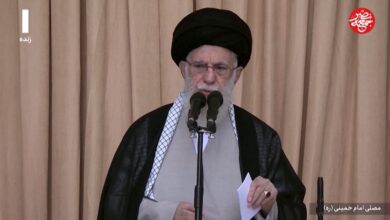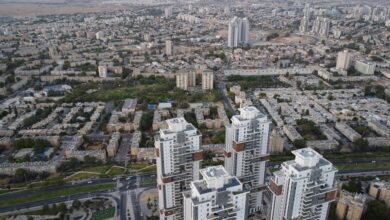Ramallah, West Bank–Palestinian President Mahmoud Abbas said Israel must agree to the idea of a third party guarding the borders of a future Palestinian state before direct peace talks can begin.
In an interview published on Saturday, Abbas said Israel must also agree in principle to an equitable land swap that would compensate the Palestinians for West Bank land absorbed by Jewish settlements in any peace deal.
The remarks were the clearest statement yet of what Abbas wants from Israel before he agrees to move to face-to-face negotiations that Washington wants the sides to begin.
Abbas met US Middle peace envoy George Mitchell on Saturday in Ramallah. Mitchell, who met Israeli Prime Minister Benjamin Netanyahu on Friday, is mediating indirect peace talks under way for two months.
The talks are about halfway through their agreed four-month lifetime. They are set to conclude in September, around the same time as a partial freeze that Netanyahu ordered last November on Israeli settlement building on occupied West Bank territory.
Israel says the current “proximity talks” are wasting time.
Netanyahu says he is ready to begin direct talks with Abbas right away. But the Palestinian president is wary of talking to an Israeli leader he believes is not willing to make an offer the Palestinians could accept.
Speaking to the Jordanian newspaper al-Ghad, Abbas said he wanted Israel to agree “in principle” to the idea that a third party take on a security role in a future Palestinian state to be founded on land occupied by Israel in a 1967 war.
“Now what is required from Israel is for it to say that these ideas are, in principle, acceptable,” he said. “That means: do they accept that the land is the 1967 borders and that there be, in the Palestinian land, a third party.
“If they agree to that, this is what we would consider the progress that we want and that would make us go to direct negotiations,” he said.
The Palestinians aim to establish their state in the West Bank and the Gaza Strip, with East Jerusalem as their capital, a demand rejected by Israeli leaders who see all of Jerusalem as the eternal capital of the Jewish state. Abbas has repeatedly stated his rejection of any Israeli security role on the frontiers of the Palestinian state. But he has accepted the idea that NATO could play a role on the borders — a compromise to ease Israeli concerns that the Palestinians would arm themselves heavily if they controlled their frontiers.
Israel, however, wants to maintain a presence in the Jordan valley along the West Bank’s eastern border with neighboring Jordan.
Ahead of direct talks, Abbas said, Israel must also agree to the idea of a fair land swap, referring to a scenario where some Israeli land bordering the West Bank would be annexed to a future Palestinian state in compensation for major Jewish West Bank settlement blocs that would become part of Israel.
“We said that the borders must be on the foundation of 1967 with agreement on an equitable swap,” he added. Palestinian officials have said they could accept such a swap but the area involved should not exceed 2 percent of the West Bank.
Netanyahu, who met US President Barack Obama last week, has promised “concrete steps” to encourage Abbas to move to direct talks. He has said he is willing to deal with the issue of settlements right away once direct talks begin.
Obama has urged the parties to begin direct talks. US State Department spokesman P.J. Crowley said this week “we have a strong belief at some point in time, direct negotiations will be renewed.”
“Whether that’s days from now or weeks from now, I don’t think we’re in a position to say at this point,” he said in a news briefing, the text of which was published on the State Department Web site.




